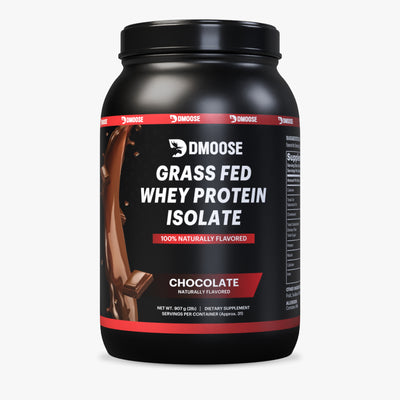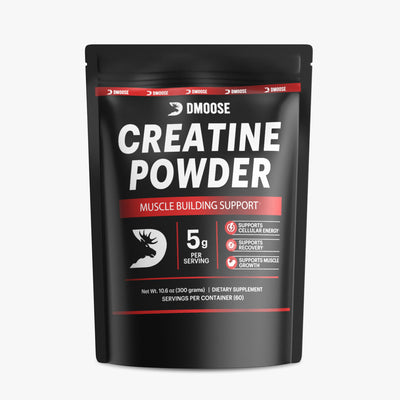Ever notice how some days the heaviest thing in the gym isn’t the barbell, but your own mindset? As a weightlifter, you already know the grind of pushing plates and chasing PRs. But the secret sauce to smashing those goals often lies between your ears.
In fitness, mindset refers to the beliefs and attitudes you bring to your training, essentially, how you think about your abilities, challenges, and progress. It’s the invisible factor that can make or break your consistency and results.
In this article, we’ll explore what mindset means for weightlifters, why having the right mindset is a game-changer, and how it influences everything from your workout consistency to recovery and progression.
We’ll also dive into fixed vs. growth mindset (and how to tell which one’s living in your head on squat day), sprinkle in a bit of psychology, and give you actionable strategies to level-up your mental game. Grab a protein shake, and let’s lift your mindset to new heights!
Understanding Mindset in Fitness
In simple terms, mindset is the collection of thoughts and beliefs that shape how you interpret and respond to situations. In a fitness context, mindset is the foundation for achieving lasting results, it affects how you perceive challenges, stay committed, and ultimately whether you reach your goals.
Think of it as your mental approach to training: do you believe your strength and skills are set in stone, or do you see them as qualities you can grow over time? Your answer hints at whether you have a fixed or growth mindset, which we’ll break down next.
Weightlifting isn’t just a physical battle; it’s a mental one too. The way you think before a big lift, “This weight looks impossible” vs. “This looks tough, but I can give it my all” can determine how you perform and what you learn from it. Psychologists like Carol Dweck have shown that our mindset profoundly impacts. In fact, many elite athletes credit a strong, positive mindset as the X-factor that keeps them grinding and improving, even when workouts get hard or plateaus hit. In short, mindset matters a lot!
Fixed Mindset vs. Growth Mindset (Weightlifter Edition)

You might be wondering, what’s the difference between a fixed and growth mindset, and why should I care? Carol Dweck’s research describes these as two ends of a spectrum. Here’s how they play out in the weight room:
- Fixed Mindset: You believe your abilities and potential are fixed by genetics or innate talent. A weightlifter with a fixed mindset might say things like, “I’m just not naturally strong” or “I’ll never be able to deadlift 400 lbs.” Challenges are seen as threats and a proof of one’s limitations, so if a training cycle gets tough, someone with a fixed mindset may get discouraged or give up easily. Failure is feared or taken personally, because it feels like a verdict on one’s inherent ability. For example, a fixed-mindset lifter might walk up to a heavy barbell thinking, “This is too heavy; I probably can’t lift it.” If they fail the lift, they shrug it off as confirmation that it was impossible anyway. In other words, there’s “no loss” because they believed success was out of reach from the start but there’s also no growth.
- Growth Mindset: You believe your abilities can be developed through effort, good strategies, and help from others. A weightlifter with a growth mindset says, “I can get stronger with practice” or “I haven’t hit that PR yet, but I will.” Challenges are welcomed as opportunities to improve. When faced with a setback say you miss a lift, you don’t see it as failure, but as feedback. The growth-minded lifter approaches that heavy barbell thinking, “It’s heavy and will take all my strength, but if I give my best effort, I’ll learn something even if I miss it.” This way, whether the lift succeeds or not, they get valuable info: maybe identifying a weakness or a reach your goals. People with a growth mindset understand that effort, consistency, and learning from mistakes are the path to progress. They tend to be more resilient, because they see setbacks as part of the journey rather than a dead-end.
Why does this matter? Because shifting from a fixed to a growth mindset can be a total game-changer for your training. It creates a belief that your fitness success is within your control, not predetermined. You’ll push past self-imposed limits, stay more consistent, and build the mental toughness needed for long-term gains. In fact, a growth mindset literally primes your brain for improvement, it helps you “embrace learning” and welcome challenges, mistakes, and feedback as fuel to get better. And the best part? Anyone can develop a growth mindset with practice.
How Mindset Influences Consistency, Recovery, and Progression
Your mindset doesn’t just live in your head, it shows up in your daily workouts and recovery habits. Let’s break down how having the right mindset (versus the wrong one) impacts three big areas of your fitness journey:
Mindset and Workout Consistency

Consistency is the holy grail of progress. Hit your workouts day in and day out, not just when you “feel motivated.” Here’s where mindset comes in. With a growth mindset, you understand that every training session (even the rough ones) is part of the process of improvement. You’re more likely to show up on the days you don’t feel 100% because you believe effort matters more than instant results. In contrast, a fixed mindset might have you thinking “I’m not cut out for this” after a bad workout, making it tempting to skip the next one.
Ever heard the saying “motivation is what gets you started, habit is what keeps you going”? A growth mindset helps turn workouts into habits. You learn to love the grind or at least respect it, because you trust that consistent effort will pay off. If you miss a lift or have a low-energy day, instead of quitting, you ask “What can I learn from this? How can I adjust?” This resilience keeps you coming back. Research in sports psychology notes that athletes with growth mindsets tend to maintain intrinsic motivation more effectively during challenges, meaning they rely on internal drive and discipline. They set process goals (like improving form or adding one rep each session) rather than obsessing only over outcome goals.
This mindset shift, focusing on the process, makes consistency a lot easier because every day has a purpose beyond just hitting a target number.
Practically, adopting a growth mindset might mean you treat your workout like a non-negotiable appointment, just like brushing your teeth. You acknowledge you won’t PR every day and that’s okay. What matters is showing up and putting in the work, knowing you’re one step closer. And on those days when your motivation is running on empty, remember: growth mindset folks lean on habits and discipline to carry them through. Tip: having a routine (for example, always hitting the gym at 7am or right after work) can help remove the mental “Should I go today?” question. Over time, consistent training fueled by a positive mindset leads to huge compounding gains.
(Need a little extra boost on tough days? Sometimes a tool like a good pre-workout can help you get in the zone when motivation flags. A quality pre-workout supplement like the DMoose Pre-Workout Powder can increase your focus and fighting spirit by boosting energy and even reducing mental fatigue. Think of it as a helpful nudge for your mind and body to stick to your workout when your couch is calling.)
Mindset and Recovery

Recovery isn’t just about muscles, it’s also about mindset. In weightlifting, the growth happens between workouts, when your body repairs and strengthens itself. How you mentally approach rest days, soreness, and setbacks is crucial. A positive, growth-oriented mindset will remind you that recovery is part of the process, not a pause in progress. You’ll be more likely to listen to your body without guilt, stretch, sleep, and do the mobility work because you know it’s an investment in your next session. On the flip side, a fixed mindset might make you anxious about taking a day off (“I’ll fall behind if I don’t train!”) or overly critical when you feel exhausted, which can lead to overtraining or burnout.
Science backs up the link between your mental state and recovery. Stressing out slows you down, literally. If you constantly beat yourself up over a missed lift or worry that a deload week means you’re getting weaker, you ramp up stress hormones that can hinder muscle repair. Adopting stress-management techniques and a positive outlook can speed up recovery. For example, practicing mindfulness and staying present can reduce stress and promote relaxation, which is essential for optimal recovery. Tuning into your body’s signals without judgment helps you address little issues (tight muscles, nagging pain) before they become big ones.
A growth mindset also frames setbacks as temporary. Injuries or bad days are viewed as challenges to overcome with smart recovery strategies, rather than catastrophes. This not only keeps you in the right headspace, but can actually improve your physical healing. Techniques like visualization, mentally picturing yourself recovering stronger, can activate the mind-body connection and even speed up healing. Staying positive and mentally flexible means if you can’t do your usual workout (say, due to an ache or scheduling issue), you’ll find an alternative rather than skip entirely. Maybe you focus on rehab exercises, or work on your flexibility, or train another body part, all with the mindset that you’re still moving forward.
(Pro tip: Managing stress is key to recovery. Consider tools like the DMoose Mushroom Complex, a supplement blend of Lion’s Mane, Reishi, and other adaptogenic mushrooms. These have been shown to support cognitive function and help the body handle stress and fatigue. In other words, they can give your mind a calmer, clearer edge helping you relax on rest days and come back stronger. Think of it as recovery support for both mind and body, keeping you balanced and resilient.)
Mindset and Progression

When it comes to making progress, adding weight to the bar, improving your form, or hitting new personal records, mindset can be the accelerator or the brakes. With a fixed mindset, you might unconsciously set a ceiling on your progress: “People like me just can’t squat double bodyweight” or “I’m not built for Olympic lifts, so why try heavier?” These thoughts can become self-fulfilling prophecies; you avoid pushing beyond your comfort zone because you “know” your limits. But guess what? Those limits are often imagined. A growth mindset, by contrast, says there’s always room to improve and you just haven’t done it yet. This outlook fuels you to attack plateaus rather than surrender to them.
Progress in weightlifting is rarely linear, it’s a journey of peaks, plateaus, and occasional dips. Your mindset determines whether you see a plateau as a permanent wall or a problem to solve. Growth-minded lifters believe that with the right effort and learning, they can break through barriers. If they’re stuck at a bench press plateau, they experiment with new techniques, assistance exercises, or programming tweaks, confident that improvement is possible. They set stretch goals and chase mastery, not just comparison with others. In fact, they often seek out challenges slightly above their current ability, knowing that’s how you grow. This is the “embrace the suck” mentality, loving the process of getting better, even when it’s hard.
There’s also a fascinating mind-body aspect here. The belief that you can improve actually helps your brain optimize performance. Studies have found that athletes who use mental techniques like visualization and maintain strong focus during training see greater strength gains than those who just go through the motions. By training your brain to concentrate on the task (the famed “mind-muscle connection”), you recruit muscles more effectively and learn skills faster. In essence, believing in progression makes you more likely to take the actions that lead to progression whether that’s adding 5 extra pounds, squeezing out one more rep, or trying a harder variation. Over time, these add up to huge improvements.
Lastly, a growth mindset makes you adaptable. If something isn’t yielding progress, you don’t think “Oh well, that’s my max.” Instead, you pivot: maybe adjust your program, seek advice, or strengthen a weakness. You view others’ success not with envy, but with curiosity, “What can I learn from them?” This openness keeps you progressing in the long run. And when you do hit that big goal? You’ll likely attribute it to your hard work and smart approach, reinforcing the cycle of positivity and action.
(Quick note: sometimes giving your progress an extra push can come from outside support, too. For example, a pre-workout supplement with ingredients like creatine and caffeine can boost your training intensity and endurance, helping you eke out more gains from each session. The DMoose Pre-Workout Powder, for instance, contains research-backed ingredients that increase strength and fight off mental fatigue so you can train harder and recover faster. Coupled with a growth mindset, it’s like adding rocket fuel to your progress engine, the belief and the boost to go beyond your previous limits.)
Strategies to Cultivate a Growth Mindset
Good news: you’re not stuck with the mindset you have today. Just like building muscle, you can train your brain to think more constructively and flexibly. Here are some actionable strategies for weightlifters to develop a stronger, growth-oriented mindset (you can start these right now):
- Reframe Your Self-Talk: Pay attention to that little voice in your head when you face a challenge. If you catch yourself thinking in fixed terms (“I can’t do this” or “I always fail at squats”), flip the script. Add the magic word “yet” and make it “I can’t do this yet”, and replace self-doubt with encouragement. For instance, instead of “I’m weak at pull-ups,” say, “I’m building my pull-up strength each week.” This kind of positive self-talk boosts confidence and resilience. Be your own coach and cheerleader!
- Set Process Goals, Not Just Outcome Goals: It’s fine to have big goals like a 300 lb bench or entering a competition, but those can feel far away. Break it down into process goals, the day-to-day actions that will get you there. For example: committing to 4 gym sessions a week, adding one extra rep on your accessory lifts, or improving your sleep schedule. Celebrate these small wins. Focusing on the process keeps you motivated and enjoying the journey, since you’re succeeding all the time (not just when you finally hit the big goal). Remember, consistent small steps lead to massive results.
- Embrace Challenges and Failures as Feedback: Next time you struggle with a lift or even fail it, take a moment to analyze rather than criticize. What did the experience teach you? Maybe your form broke at a certain point, that’s a clue on what to strengthen. Maybe you didn’t fuel up enough beforehand, a reminder to adjust nutrition. Adopting the mindset that “failure is a stepping stone to success” turns obstacles into opportunities to learn. Many top athletes use this approach: every setback is data for a comeback. When something feels hard, grin and think, “Challenge accepted! This is where I grow.”
- Practice Visualization and Mindfulness: These are like workouts for your mind. Spend a few minutes visualizing yourself achieving a goal or performing an exercise with perfect form. Imagine the feeling of hitting that PR or blasting through that sticking point. Visualization can actually activate your muscles and nervous system in beneficial ways. Believe it or not, simply imagining lifting heavy weights has been shown to increase strength by improving brain-muscle communication. Likewise, mindfulness (being fully present in the moment) can improve your mind-muscle connection and reduce performance anxiety. During your next workout, try to focus intensely on each rep. Feel the contraction, count the tempo, and see the difference in engagement.
- Surround Yourself with Growth-Minded People: Attitudes are contagious. Spend time with fellow lifters who lift you up. Training partners or a fitness community that encourages progress, shares knowledge, and doesn’t throw pity parties. If you have a coach, choose one who emphasizes improvement and effort over just winning. Even online, curate your social media to follow positive, educational fitness content. When you’re in an environment where “hard work > genetics” and everyone celebrates each other’s personal progress, it reinforces your own growth mindset. DMoose’s community, for example, centers on empowering individuals to push boundaries and “lift their lives”, exactly the kind of positive vibes you want fueling your journey.
- Use Tools That Support Your Mental Edge: Your body and mind work together, so set yourself up for success on both fronts. Prioritize good nutrition and sleep to improve mood and cognitive function. Consider incorporating supplements that sharpen your focus and mental performance on training days. A cup of coffee or a trusted pre-workout can ignite your alertness and drive. Adaptogens like the DMoose Mushroom Complex.can help you stay calm yet focused under pressure by managing stress and boosting mental clarity. These tools shouldn’t replace mental work, but they can complement it, just like giving your brain a supportive spotter for those heavy mental lifts.
By practicing the strategies above, you’ll gradually notice a shift in how you approach not just fitness, but challenges in other areas of life too. Instead of dreading difficulties or fearing failure, you’ll start seeing possibility. Over time, this mindset becomes second nature, a new default where you instinctively look for the upside and the lesson in every challenge. That’s when you truly become unstoppable.
Lift Your Life with the Right Mindset
At the end of the day, squats and deadlifts build muscle, but mindset builds champions. The beautiful thing about a growth mindset is that it doesn’t just help you add pounds to the bar; it helps you lift your entire life. When you believe in your ability to improve, stay consistent through ups and downs, and treat setbacks as setups for comebacks, you unlock a new level of potential in and out of the gym. You become more resilient, more focused, and yes, physically stronger too.
So the next time you face a daunting workout or a goal that scares you a little, remember this: your mindset is your most powerful muscle. Train it, care for it, and use it. Mix that mental strength with the right tools, your training program, your recovery routine, maybe a DMoose supplement or two to give you an edge, and you have a formula for success that’s hard to beat. Keep it empowering, keep it fun (lifting is supposed to be fun!), and stay authentic to your journey.
You have the power to rewrite your story rep by rep, mindset shift by mindset shift. Embrace the growth process and watch not only your fitness goals, but your confidence and life, soar to new heights. Now get out there and keep lifting and remember, every great lift begins with a strong mind. Here’s to lifting your limits and lifting your life!












